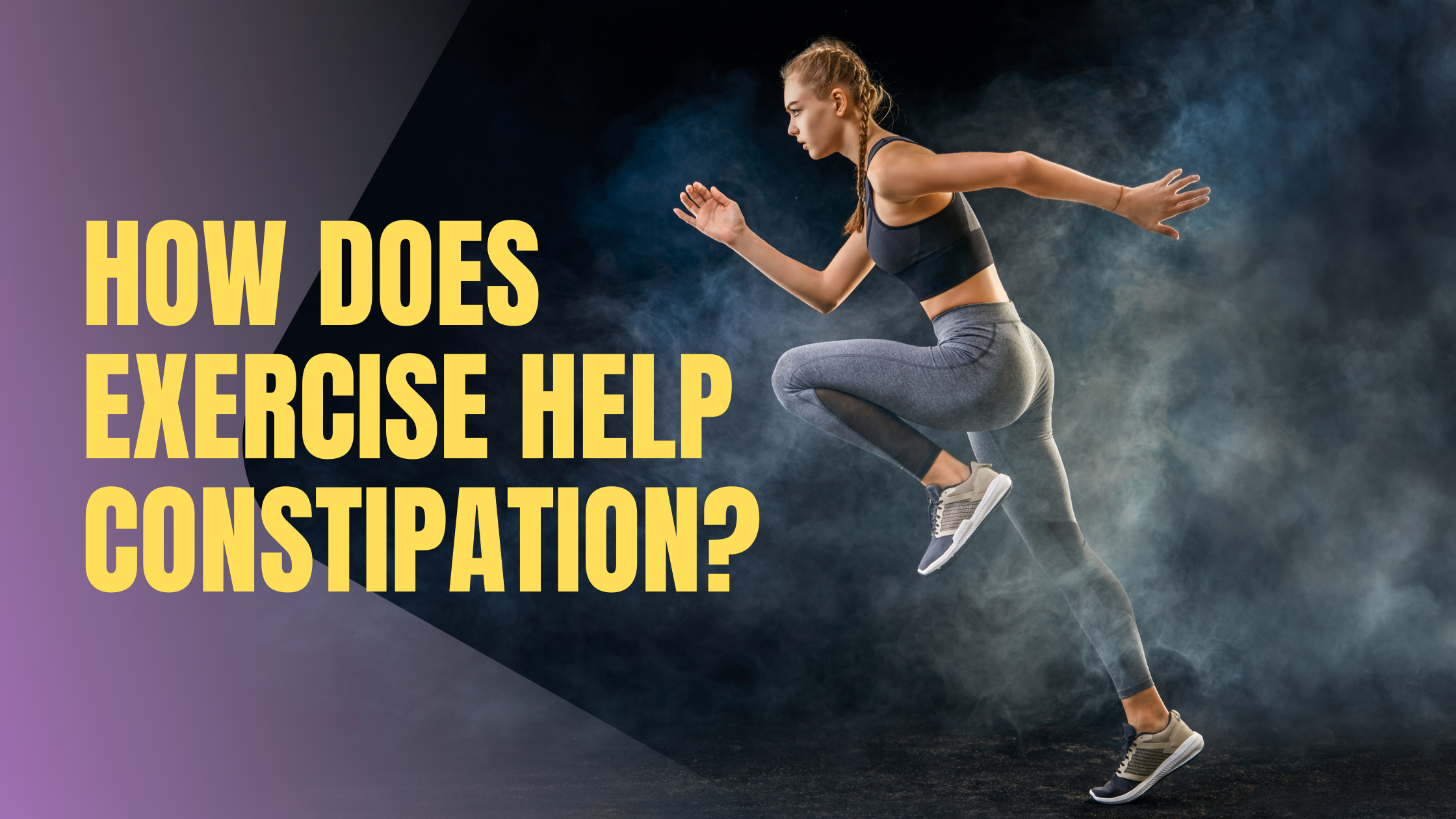Well, we might not have had the promised August heatwave but we have enjoyed a fabulous few weeks of sports, I have enjoyed watching the Olympics and while we can’t all excel in a sport we can all exercise! Just look at the Paralympics for inspiration, good luck team GB!
We have all heard of the benefits of exercise for our health, but did you know it’s also vital for gut health and can help alleviate one of the biggest complaints I see, constipation?
How does exercise help constipation?
People may assume it’s only nutrition that affects the gut but physical activity is just as important as nutrition. Frequent exercise and a healthy gut go hand in hand.
One of the key things that lead to constipation is inactivity, in the modern world we just don’t move enough even though we work hard every day. Sitting down at a desk all day, driving around from A to B doesn’t stimulate the bowel.
Aerobic exercise speeds up your breathing and heart rate. This helps to stimulate the natural squeezing (or contractions) of muscles in your intestines. Food that takes too long to move through the intestines causes too much water to be absorbed through the body leading to hard, dry stools which are much harder to pass.
Cardiovascular workouts, stretching, yoga, and weight lifting are all ideal ways to get moving!
Can exercise affect your immune system?
The vast majority of our immune system is found in the gut, over 100 trillion bacteria live in our gut microbiome, we are a huge ecosystem! The gut microbiome helps us fight diseases and viruses. The cycle is quite simple: consistent exercise improves our gut health, which improves our immune system, which keeps us healthy.
Can exercise change the composition of gut bacteria?
It’s quite amazing but yes! In a recent study from the University of Illinois, researchers found that exercising for just six weeks could have an impact on the microbiome.
“These are the first studies to show that exercise can have an effect on your gut independent of diet or other factors,” said Jeffrey Woods, PhD, a University of Illinois professor of kinesiology and community health.
In the study researchers took sedentary adults and sampled their microbiome, they started the individuals on a 6-week exercise programme consisting of cardiovascular exercise for 30 to 60 minutes three times a week.
At the end of the 6 weeks, they found many had an increase in gut microbes that assist in the production of short-chain fatty acids. These fatty acids reduce the risk of inflammatory diseases as well as type 2 diabetes, obesity, and heart disease.
Interestingly, they found that the gut reverted back to its prior state after another six weeks of sedentary behaviour.
It’s important your exercise regularly and keep it up to experience long term health benefits for the gut.
How much should you exercise?
The NHS recommends at least 150 minutes of moderate-intensity activity a week or 75 minutes of vigorous-intensity activity a week.
Moderate activity will raise your heart rate, and make you breathe faster and feel warmer. If you do suffer badly from constipation aim for 30 minutes of moderate exercise daily to keep things moving!
Examples of moderate-intensity activities include:
- brisk walking
- water aerobics
- riding a bike
- dancing
- doubles tennis
- pushing a lawnmower
- hiking
- rollerblading
The bottom line.
Exercise plays an important role in gut health and contributes to every aspect of health and wellbeing. I’m sure almost all of us could be a little more active!
Is there something you have always fancied having a go at? Yoga, pilates, couch to 5k? My challenge to you is to go for it!


